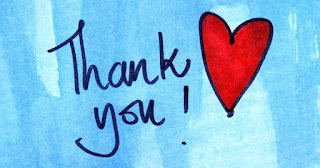In past blog posts, I have featured some excellent research on the benefits of expressing gratitude. Most of that work focused on the benefits to the person giving thanks. New research from UNC-Chapel Hill Professor Sara B. Algoe and her colleagues demonstrates an interesting ancillary benefit from thanking others. They call it the witness effect. Gratitude doesn't just benefit the individuals giving and receiving thanks; it also has a positive impact on third parties who witness this exchange.
Musings about Leadership, Decision Making, and Competitive Strategy
Tuesday, January 24, 2023
Expressing Gratitude May Promote Better Collaboration
In past blog posts, I have featured some excellent research on the benefits of expressing gratitude. Most of that work focused on the benefits to the person giving thanks. New research from UNC-Chapel Hill Professor Sara B. Algoe and her colleagues demonstrates an interesting ancillary benefit from thanking others. They call it the witness effect. Gratitude doesn't just benefit the individuals giving and receiving thanks; it also has a positive impact on third parties who witness this exchange.
Thursday, January 19, 2023
A Genuine Apology Goes a Long Way
Thursday, January 12, 2023
Does Pay Transparency Help or Hurt Workers?
 |
| Source: TechTarget |
The UCLA Anderson Review recently published a feature article titled, "Pay Transparency: Will It Help or Hurt Workers?" The article focused on the work of Harvard Business School Professor Zoe Cullen and Brown University Professor Bobak Pakzad-Hurson. These scholars found that employers with non-unionized workforces might capitalize on the newly available data about salaries across a wide range of firms to drive a very hard bargain with job candidates. As a result, the transparency laws might depress starting wages. Here is an excerpt from the article:
More research clearly must be done, and this paper's conclusions from analysis of the TaskRabbit platform might not apply to the broader labor market. Still, the study suggests that more attention must be paid to the actual impact of these new transparency laws, rather than simply assuming that they will benefit employees.
Monday, January 09, 2023
Equinox vs. Planet Fitness: Twitter Clash!
Several years ago, I wrote a case study about Planet Fitness, the "Judgement Free Zone" chain of fitness centers. Therefore, I tend to follow the gym industry. On New Year's Day, premium fitness center chain Equinox posted the following message on social media. It created quite a stir.
Interestingly, both firms are telling certain people they are NOT very welcome at their gyms. Recall Planet Fitness' famous "I lift things up and put them down" advertisement in which an employee shows a bodybuilder the exit! That Planet Fitness advertisement is very much like this January tweet from Equinox. So, neither firm is off the mark here. They are each addressing their customers with distinct messages that fit their contrasting audiences and their associated needs and wants. They are both trying to attract their core customer by explicitly describing who doesn't fit at their gyms.
Thursday, January 05, 2023
Owning Your Job
 |
| Source: Verywell Mind |



